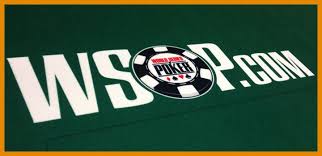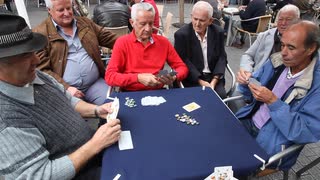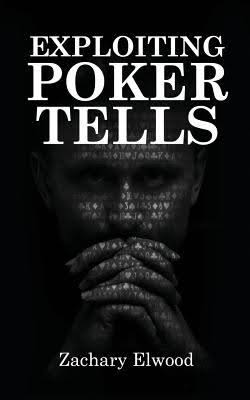If you are a Vegan (not the kind that eats only vegetable matter but the kind that resides in Las Vegas) and you play poker AND can manage to find your way around a computer keyboard, then you have probably played poker on-line at WSOP.com. You may not want to admit that but you are among friends here so go on! Confess!! OK, that’s done. Now, let’s proceed.
There are many real money games to choose from on the site and, although the “liquidity” (a fancy word for the number of people available to play) is nowhere near what it used to be in the heyday of crooked poker sites like AbsolutePoker, UltimateBet and Full Tilt, you can usually find a game especially if you like tournaments.

Poker players have a knack for narrowing the field when choosing when, where and what to play so the inclination is always to try to stack the deck as best you can. Most experienced players avoid the $1 all-in fests that encourage (demand might be more apropos here!) wild and crazy play. As the buy-ins increase, the fields tend to evaporate into only those who can afford it and who play well. Fish be gone! Other than that, there are very few ways to increase your odds online through table selection alone. However, there is at least one tournament that limits the participants to a select few – Seniors!
The tournament I am referring to is a $10 entry $500 guaranteed event with unlimited rebuys for an hour or so and an add-on before things get serious. The rules require a player to be 50+ years old for entry. Since WSOP.com obliges you to list your birthday when you enroll, ferreting out the imposters is left to a simple algorithm. If you are not 50 years of age, you can’t get in. The senior tournament I played recently had just under 40 entrants and was paying 8 places with a first prize of $277 and an 8th place payout of $42 – not bad for a $10 entry, one rebuy, and one add-on for a total of just short of 30 bucks. It started at 6 PM.
Sounds good, right? Buyer beware. This tournament has issues that are not readily apparent.

Have you played poker with seniors before? Have you associated with senior citizens before? Stood behind them on a supermarket line? Tried to drive behind them? Have you attempted getting in to see a movie on senior discount day? In a word, they are slow and WSOP.com has designed this tournament especially for them.
Let’s talk about the tournament structure. I’m no purist. As much as I respect Allen Kessler’s nitpicking (@allenkessler) about levels and blinds, I generally take what I can get and for the most part, especially in live low buy-in tournaments, that means fast paced structures with 20 minute levels that often seem to pass at a blinding pace. Online tournaments are usually a little better, a little slower. Time frames for levels are shorter but the blinds gradually increase. This tournament, however, is too slow even for turtles, desert tortoises, snails, slugs and sloths. Take a look at this structure:
Editor’s Note: After a week or so of trying to get the WSOP.com folks to send me a PDF or WORD version of the structure for this tournament so I could post it here, I am officially giving up. The tech I emailed with was nice enough but he had to get clearance from the higher ups first and that doesn’t seem to be happening. If you are playing the tournament and have the courage to wander around the site while you are, you can find it. Otherwise, you will have to take my word for it. SLOW does not adequately describe the pace of this MTT.
Although the levels only last 10 minutes each, the progress of this tournament from level to level (some levels increase by a mere $10 and $20!) is numbing. It goes on forever. I busted out 12th of a total of 37 players (no payout, of course) and the clock said it was 10:30 PM. Four and a half hours and the tournament was nowhere close to being over.
Part of the issue is the amount of time older players take to make decisions. WSOP.com gives you about 10 seconds to make a fold/call/raise decision and when that time runs out they generously revert to a “time bank” that gives you another 30 seconds. Most players in this event are using a good deal of the allotted time to act. I nodded off a few times waiting for my turn to play. Thankfully the system has dings and gongs built in when your turn comes around. For me these sounds served as alarm clocks to rouse me from my slumber.
On the other hand, seniors aren’t as nasty and judgmental as players in other online tournaments who, I assume, are minus 50 years of age. In other tournaments you are soundly reprimanded for playing anything less that JJ and beating someone who swears they have a premium hand. The tirades go on and on. In this tournament I was only verbally abused once (I was called a “donk,” short for Donkey for those of you not familiar with the arcane poker lexicon!). I was in the big blind (BB) and was dealt a 72 suited – nice red hearts. No one raised so I played along and caught a very nice heart flush, beating the sore loser who had Aces. He felt, as so many poker purists do, that if you have Aces you ALWAYS are a winner. Right? So he went on a rant which I quickly stunted by “muting” him in my chat window. Rant on. Is someone really abusive if their words are not heard (or read) by anyone? Same issue as that tree falling in the forest. I don’t know and I don’t care at this point.
He is an exception to the rule that senior poker players appear to be mellower than most. I witnessed a hand (I am often a witness to hands having folded my unsuited 4s and 7s along with other terrible cards) that at most tables would have elicited all kinds of missing letter curse words like F**K YOU, and EAT SH*T but not here. A player made a healthy size bet with KK and he was raised all-in by someone to his left. No big deal. Cowboys are kings, literally! The original bettor called the ALL-IN and the computer turned over their hands – KK vs 10 10. The flop, turn and river, which, by the way, come very quickly online and not slowly and dramatically like is often the case in a live game, looked innocent enough: FLOP 2 8 6 rainbow (all different suits). The turn was a Q and the river, you guessed it, was a 10. No comments, no baby crying, no NH (nice hand) or anything. Just two silent seniors – one racking winnings and the other plotting future strategies. Nice!
Another observation. Those of you who play online tournaments know how we all hate (detest, despise, abhor, etc.) the players who “sit out” hand after hand once they have accumulated a nice stack of chips. Then there are those who are “disconnected” which, I suspect is a ruse as well. In this tournament, however, either of those labels may indicate something else, something far more sinister. Remember these are seniors, 50+ year old codgers (remember that 50+ includes sexagenarians, septuagenarians, octogenarians, nonagenarians, and even centenarians!). They may be sleeping. They may be otherwise unconscious. They may be dead. They may have had a stroke or just passed away quietly doing something they really love. Thank god the system, regardless of their lack of consciousness or demise, will credit their winnings to their accounts which will be settled in probate.
By all means, if you are among the 50+ crowd, as I am, look for this tournament (usually at 6 PM about an hour or so after that early bird discount dinner at the local casino buffet) and give it a try. Taking a stimulant of some kind (caffeine pills, Ritalin, illegal controlled speed type substances if you are so inclined) beforehand is highly recommended. You will be there a while staring at a computer screen that barely moves. Whatever you do, avoid settling into your fuzzy jammies and your bunny slippers. If you dare to I promise you too will be asleep by 7:30 PM.
See you at the tables – GameGran


 Zachary Elwood’s Exploiting Poker Tells (2017) is an exceptional book, one that should not be approached lightly. While it is the culmination of a trilogy of books on poker behavior, the first two being Reading Poker Tells (2012), and Verbal Poker Tells (2014), in complexity and comprehensiveness it stands far above them. It is not a book to be skimmed, browsed through, or savored for enjoyment; it is a book to be studied and referenced. Along with the classic poker strategy books that are part of every serious poker player’s library, it needs to be on your bookshelf if you hope to conquer the psychological and behavioral aspects of the game.
Zachary Elwood’s Exploiting Poker Tells (2017) is an exceptional book, one that should not be approached lightly. While it is the culmination of a trilogy of books on poker behavior, the first two being Reading Poker Tells (2012), and Verbal Poker Tells (2014), in complexity and comprehensiveness it stands far above them. It is not a book to be skimmed, browsed through, or savored for enjoyment; it is a book to be studied and referenced. Along with the classic poker strategy books that are part of every serious poker player’s library, it needs to be on your bookshelf if you hope to conquer the psychological and behavioral aspects of the game.